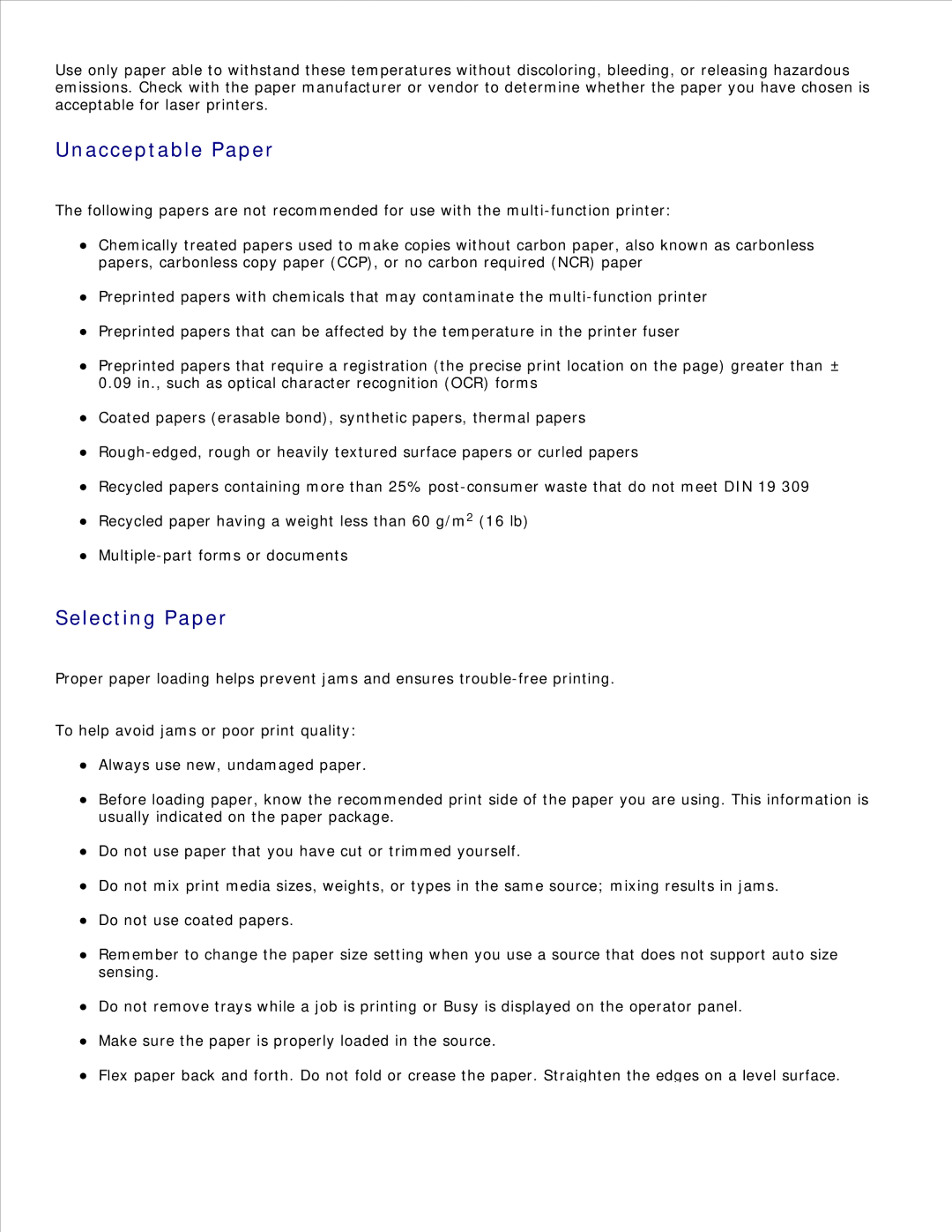
Use only paper able to withstand these temperatures without discoloring, bleeding, or releasing hazardous emissions. Check with the paper manufacturer or vendor to determine whether the paper you have chosen is acceptable for laser printers.
Unacceptable Paper
The following papers are not recommended for use with the
Chemically treated papers used to make copies without carbon paper, also known as carbonless papers, carbonless copy paper (CCP), or no carbon required (NCR) paper
Preprinted papers with chemicals that may contaminate the
Preprinted papers that can be affected by the temperature in the printer fuser
Preprinted papers that require a registration (the precise print location on the page) greater than ± 0.09 in., such as optical character recognition (OCR) forms
Coated papers (erasable bond), synthetic papers, thermal papers
Recycled papers containing more than 25%
Recycled paper having a weight less than 60 g/m2 (16 lb)
Selecting Paper
Proper paper loading helps prevent jams and ensures
To help avoid jams or poor print quality:
Always use new, undamaged paper.
Before loading paper, know the recommended print side of the paper you are using. This information is usually indicated on the paper package.
Do not use paper that you have cut or trimmed yourself.
Do not mix print media sizes, weights, or types in the same source; mixing results in jams.
Do not use coated papers.
Remember to change the paper size setting when you use a source that does not support auto size sensing.
Do not remove trays while a job is printing or Busy is displayed on the operator panel.
Make sure the paper is properly loaded in the source.
Flex paper back and forth. Do not fold or crease the paper. Straighten the edges on a level surface.
